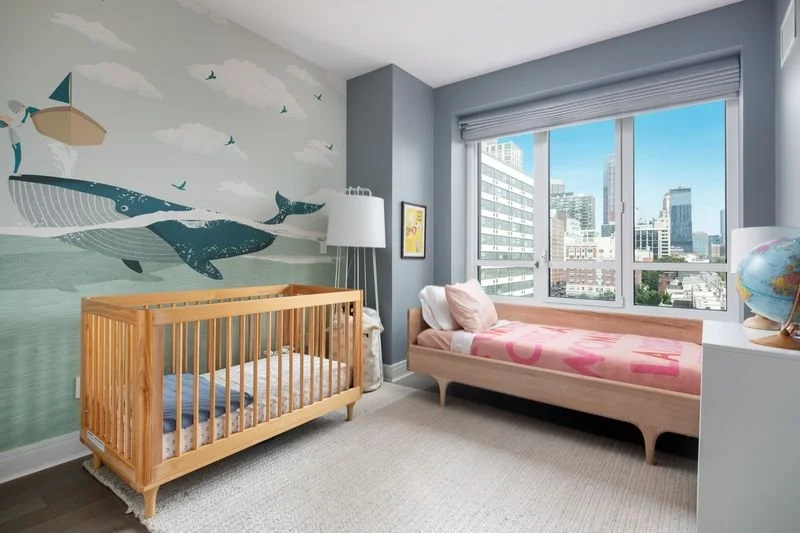How To Get Security Deposit Back From A Landlord
Most landlord/tenant relationships go smoothly. Renters pay their landlords a fee, and in return, they get a roof over their heads. If disagreements do occur, the vast majority involve the security deposit. Each state will have its own law regarding the security deposit, how the whole process is handled, and how it should be returned. Let's go over what it is, what it is supposed to be used for, and lastly, how to get it back quickly and hopefully easily.
What is a Security Deposit
Defined by Legal Zoom, a security deposit is money given to the landlord by the renter. It is used to cover any damage and repairs caused by the tenant.
The security deposit is usually equal to one month's rent. But it could be more or less. State law will govern the amount. In Texas for example, there is no law limiting the security deposit.
Many states will have rules indicating that the funds must be deposited in a separate escrow account. The landlord must provide the bank and account number where the so-called funds are placed. The funds cannot be used for any expenses the landlord incurs.
In other more lenient states, the landlord won't have to account for the money. They can spend it on random expenses if they so choose. Although it sounds sketchy, that's the law.
Damages: What Your Deposit Can Be Used For
So what can your landlord charge you for? In almost all cases, you can only be charged for items that you damage. This should not be confused with normal wear and tear. Let's talk about the definitions for both. Again renters shouldn't be charged for normal wear and tear. Here is a list of items that fall under this category
Worn doorknobs
Curtains faded by direct sunlight
Small scratches in wood flooring
Light stains in the carpeting
Chipped paint in the interior of the homes
Worn carpeting
Grimy interior of the refrigerator
These are examples of damages that you will be assessed for. Remember, you will have to pay for negligence as well. This can be defined as damage caused by your inability to take care of something. Here is a common list of items that may be damaged in apartment homes.
Broken windows or mirrors
Punch holes in the walls
Heavy stains in carpeting
Large scratches in wood flooring
Chipped tile
Dryer failure due to not cleaning and emptying dryer vents
A word about carpet cleaning. In TX, many apartments in Kingwood TX are assessing carpet cleaning fees. This should fall under normal wear and tear. Read your apartment lease carefully. If it's not in the lease, the community should not charge you for it. Most apartment management companies realize that most people won't even broach the subject.
For tenants wondering how to get my security deposit back if I never signed a lease, it's crucial to document all rent payments and any verbal agreements, as these can serve as key evidence in lieu of a formal contract.
Security Deposit Don'ts
Now that you know what the security deposit is used for, let us cover some common questions that many renters have.
You should pay your last month's rent. Private landlords usually require first and last month's rent. If you didn't pay last month's rent, don't think that you can just apply the security deposit to cover it. Not only will you incur late fees, but your landlord also won't be happy with you. The last thing you want on your apartment credit report is a black mark.
The only caveat is that your landlord provides a statement in writing that you can use the security deposit as your last month's rent. The reason you want it in writing is just in case you have to go to court to recover your money.
Moving Out: What you Need to Know
So your move out date is right around the corner. The first thing in order is to schedule a walk-through with your landlord or apartment manager.
A walk-through allows a representative from the apartment, or it could be your landlord, to check out the entire interior of the residence. They will be able to relay to you what is damaged and what is normal wear and tear. If you disagree, this is a perfect time to see if you can come to an agreement.
Now you will have a few options :
Make the repairs yourself if you can
Pay a vendor to do this for you
Do nothing
If the management company makes repairs, they will be deducted from the total of the security deposit.
Additional Required Steps
Here are some additional steps you must take in order to receive your money.
You must not be behind in paying your rent. If you are, you won't get your security deposit back
The damage must not exceed repairs.
A forwarding address must be given to the management company. But don't worry, they aren't entitled to keep your money indefinitely.
The Waiting Game
So you moved out. Each state will have different time limits that mandate how long your landlord has to send you back your money. Remember to give a forwarding address or you won't receive anything.
When you do receive your money in the mail, here are some common scenarios
You received the amount in its entirety
The landlord did deduct monies for repairs (in many states they must account for this by including an itemized list of charges with receipts)
The entire amount was used to make repairs. In some cases, you might owe more money the damages exceeded the value of the security deposit
What To Take Away
Remember the security deposit is your money. If you want to get it all back, be sure and don't damage the apartment. Also, pay your rent on time.
If you do both of the above, you shouldn't have too big of a deal getting your money back in your pocket.
Have a listing you think should be featured contact us or email at Jeremy@offthemrkt.com to tell us more! Follow Off The MRKT on Twitter and Instagram, and like us on Facebook.

















